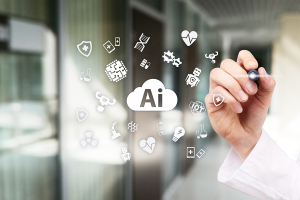by
Thomas Dworetzky, Contributing Reporter | January 07, 2020
Google Health's DeepMind artificial intelligence system appears able to equal expert radiologists in spotting breast cancer on screening mammograms.
In a study appearing in the journal
Nature by U.S. and British researchers from Google Health subsidiary Deepmind, Cancer Research UK Imperial Centre, Northwestern University, and Royal Surrey County Hospital noted that their results represent “a major advance in the potential for the early detection of breast cancer,” co-author Mozziyar Etemadi, from Northwestern Medicine, said,
according to Reuters.
“These findings show that our AI model spotted breast cancer in de-identified screening mammograms (where identifiable information has been removed) with greater accuracy, fewer false positives, and fewer false negatives than experts. This sets the stage for future applications where the model could potentially support radiologists performing breast cancer screenings,” Shravya Shetty, technical lead for Google Health, and Dr. Daniel Tse, product manager for Google Health,
advised in a blog post Jan. 1, 2020.
The team looked at a set of over 28,000 mammogram results — 25,000 from the U.K. and 3,000 from the U.S. — and found that AI was not only as accurate as the human radiologists, it also cut false positives 5.7 percent in U.S. results and 1.2 percent in those read by British physicians.
The software also led to fewer false negatives by 9.4 percent for the U.S. data and 2.7 percent for the British.
U.K. lead at Google Health Dominic King advised that the study shows the group is on the way to creating a breast cancer detection tool with greater accuracy. "Further testing, clinical validation and regulatory approvals are required before this could start making a difference for patients, but we're committed to working with our partners toward this goal," he stated,
according to CNET.
The study also noted that the difference between U.S. and U.K. results had to do with the approach taken to screening. In the U.S. a single radiologist reads the mammogram, which is taken every year or two. In the U.K. screenings are done every three years and read by two radiologists — and when they disagree, by a third.
A different test also compared AI to a half-dozen human radiologists and outperformed them in a set of 500 mammograms.
